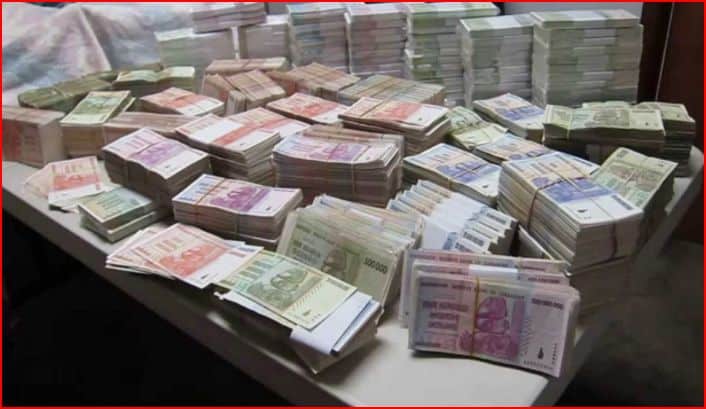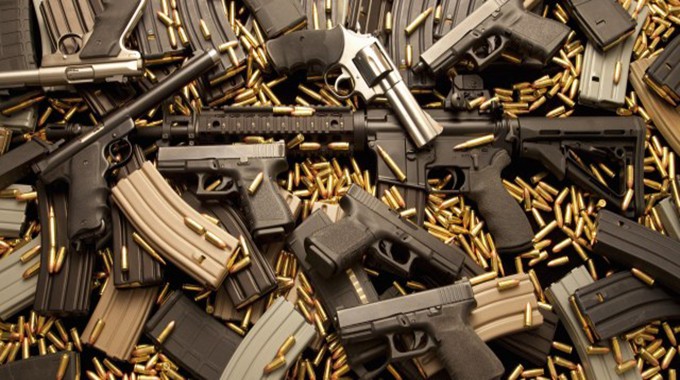PARENTS with children going to boarding schools and private schools in and around Bulawayo are likely to have a bleak Christmas as they will be agonising over school fees for next year, with some schools proposing figures in the range of $60 000 for the first term, while others are charging $17 000.
Revelations are that Falcon College in Esigodini has proposed a $60 000 or an equivalent of US$3 000 while Christian Brothers College (CBC) in Bulawayo will be charging $17 300 per term for next year.
Catholic-run Dominican Convent is also said to be charging in excess of $13 000 per term while Petra College is asking for $12 600 for secondary and $8 260 for primary with the possibility of a top up that will be determined by changes in the prices of goods mid-way through the first term.
Some private schools such as St Thomas Primary are charging $8 300. Cyrene Mission (boarding school) is charging $4 000 excluding grocery. Matopo High School and Gloag are said to have adopted a wait and see attitude as schools closed without finalising the deliberations on the fees.
“Meetings for the two schools will be held on 11 January to decide on the fees for the first term. But that is unfair to parents as there will be little time left before schools open on 14 January to run around and raise whatever will be required,” said a parent at Matopo, Mrs Miriam Ndlovu.
Parents with children at Government secondary schools in Bulawayo however, will pay between $400 and $600, according to sources. Meanwhile, our Harare Bureau reports that there is likely to be an exodus from private and mission schools to public schools due to sharp fees hikes with some schools. Most schools, both public and private, have already ominously signalled they would significantly hike their fees in tandem with galloping expenses needed to keep the institutions running. But some parents say the proposed new fees, as indicated by preliminary invoices handed out to parents last week, range from “shocking”, “ridiculous” to “outrageous”.
Although schools have been continuously adjusting their fees through out the year through top-ups, the latest round of proposed increases, especially at a time salaries have remained low, have created a “perfect storm” where parents and guardians — even with the aid of savings — simply cannot afford. The lowest-paid civil servant earns a little above $1 000 per month.
Most of those affected are presently scouting for schools that meet their budget.
“It is a shock! We had been anticipating an increase but not to this level,” said a parent whose child attends boarding school at Rusununguko High in Goromonzi, Mashonaland East, soon after picking up her son at Robert Gabriel Mugabe Square last week.
She refused to be identified for fear of victimisation.
“They say we have to pay $9 000 (next year), but where will we get the money? I am a mere nurse . . . so I may have to enrol him at a more affordable day school.”
The increases are being keenly felt in boarding schools. Pupils who will enrol for form one at Catholic-run St Dominic’s Chishawasha, located 24-kilometres from the capital, Harare, will have to part with $12 200. Similarly, Methodist-run Sandringham High School is proposing an $11 896 fee, including uniforms. Private schools are indexing their fees to the US-dollar exchange rate to insulate against soaring expenses, they say.
Fees at Highfield-based Regina Mundi Convent Primary School are currently pegged at US$280 per pupil per term, which translates to about $4 500 using the current interbank foreign exchange rate. A representative organisation of private schools, the Association of Schools (ATS), said schools will continue complying with the law, but they have to recover costs of delivering a specific service.
“As far as we understand, schools charge in Zimbabwe dollars. Each member school of ATS is independent: ATS is not required to approve or even know what fees that schools charge. ATS core values are: integrity, accountability, ethical governance and professionalism. One of the criteria of membership of ATS schools is that they are not for profit, but they do deliver a specific service whose costs have to be recovered,” said ATS chief executive officer Mr Tim Middleton.
However, there are fears that even Government schools would be applying for an adjustment, particularly in tuition, which is used to finance school projects and administrative expenses. Zimbabwe Schools Development Associations/Committees secretary-general Mr Everisto Jongwe said while schools had to review fees to remain viable, increases had to be borne out of an inclusive consultative process that guarantees a win-win for everyone.
“I would not want to blame the schools for wanting to hike the fees because the economic environment demands that they do that to remain viable. But we encourage schools to work with SDCs, parents and other stakeholders so as to come up with a solution which works for everyone.”
There are, however, fears the spate of fee hikes will trigger a wave of transfers between schools. Most worryingly, teachers believe that the present upheavals might result in rising drop-outs in rural schools. Zimbabwe Teachers’ Union (ZIMTA) chief executive officer Dr Sifiso Ndlovu said parents in rural areas might be worse off.
“We had a situation where parents in urban areas and formerly group A and B schools generally made an effort to pay school fees. It was in the rural areas where we had those problems, but with the current situation, we may begin to see even those in urban areas struggling.”
The solution, he added, lies in arresting inflation.
“It is the shocker prices of everything that are causing this situation; we have shocker electricity bills, shocker fuel prices, shocker food prices. So as we try to come up with a solution, those are the factors that we have to consider.”
According to a United Nations Educational, Scientific and Cultural Organisation (Unesco) report, about 20 400 pupils in Zimbabwe dropped out of primary school in 2018. The main reasons cited for this phenomenon were financial constraints, expulsion, and absconding.
Primary and Secondary Education Permanent Secretary Mrs Tumisang Thabela said schools should follow procedure before increasing fees.
“Our position as the Government is that all schools, in consultation with the School Development Committees, should apply first before they increase school fees. This includes all schools, including boarding schools and trust schools, because they are registered with us.”
state media














